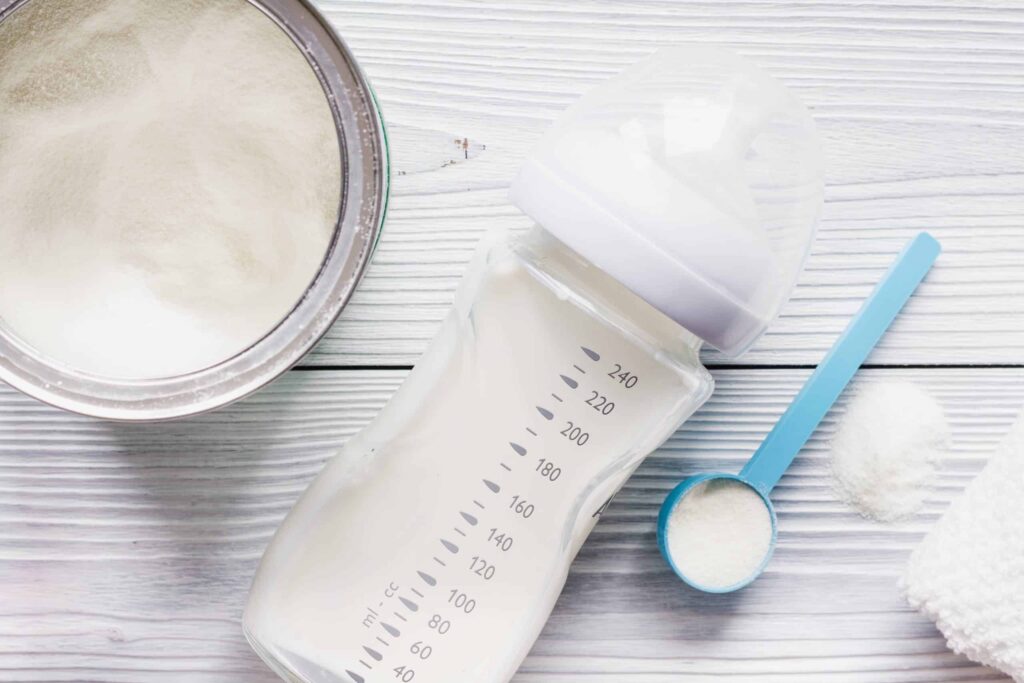Whether you’re 32-weeks pregnant, or still planning your conception, it’s never too early to decide what kind of nutrition you’ll provide your baby.
Experts say that breastmilk is the best nutrition for your baby, but every mother has that choice to make. Research, however, has proven that breastfeeding isn’t always the best method —what you eat and what lifestyle you live can affect the contents of your breast milk and some of these can even harm your little one.
Formula feeding comes with its own dilemmas too — Organic or Non-organic formula, which is safe, and which brands are the best.
All formulas are produced under strict regulations which control everything from the type of milk used to the littlest traces of pesticides used. Due to these regulations, all formulas contain just the right amount of nutritional value that your baby needs for healthy growth.
Despite all formulas being made from either cow or soy milk, every formula —whether Organic or Non-organic— varies in taste, texture, and appearance.
Non-organic baby formula— the unsaid

All formulas are said to be safe and nutritionally appropriate for your baby. But when it comes to Non-organic formulas, much of the truth isn’t told.
Roughly about 70%— 80% of formulas on the market contain toxins and carcinogens such as arsenic and lead. These toxins and carcinogens are mostly from chemicals used on farms and water. The cattle feed on the affected grass and these toxins pass down to the milk, which in turn makes its way into formulas.
Some of these formulas even claim to be organic. This is why it is much better and safer to buy organic formulas that are made in Europe. The EU has much stricter regulations when it comes to which kinds of chemicals can or cannot be used on the farms.
European farms are required to be biodynamic. They can’t use animals that have detectable levels of toxins. They are also banned from using pesticides and GMOs.
Non-organic formulas don’t require such regulations. This leaves room for a whole lot of toxins and carcinogens to be included in these formulas. So in reality, you don’t really have a clue of what’s going on in your baby’s formula, and how they could affect their growth and general health later in life.
Non-organic formulas are however cheaper than Organic Baby Formulas and are easily available. But are you willing to take the risk?
Organic Formulas— what is special?

Organic Baby Formulas are made with organic milk, which comes from free-range cows who feed on organic pasture.
A major reason why parents are making a permanent switch to Organic formulas, especially ones made in Europe, is because they’re banned from using sugar additives such as sucrose.
This sugar additive increases your baby’s sugar cravings, and since babies cannot talk, they often cry when they get these cravings. Mothers interpret this as hunger and feed the baby more. In the end, your baby will be taking in way more sugar than what is required.
European Organic Baby Formulas are also restricted from containing
- Growth hormone
- Pesticide residues
- Toxins
- GMO
- Artificial colors
- Synthetic preservatives
- Artificial flavorings
Furthermore, European Organic Baby Formulas are required to contain a minimum of 95% organic ingredients. They are required to contain:
- probiotics that give the right intestinal microflora your baby needs
- prebiotics which provide nutrients to your baby’s beneficial intestinal bacteria.
In summary, the best organic baby formulas contain just the right amount of nutrients and ingredients for your baby’s healthy growth. They do not contain extra ingredients, which help your baby digest them fast and absorb all the nutrients.







